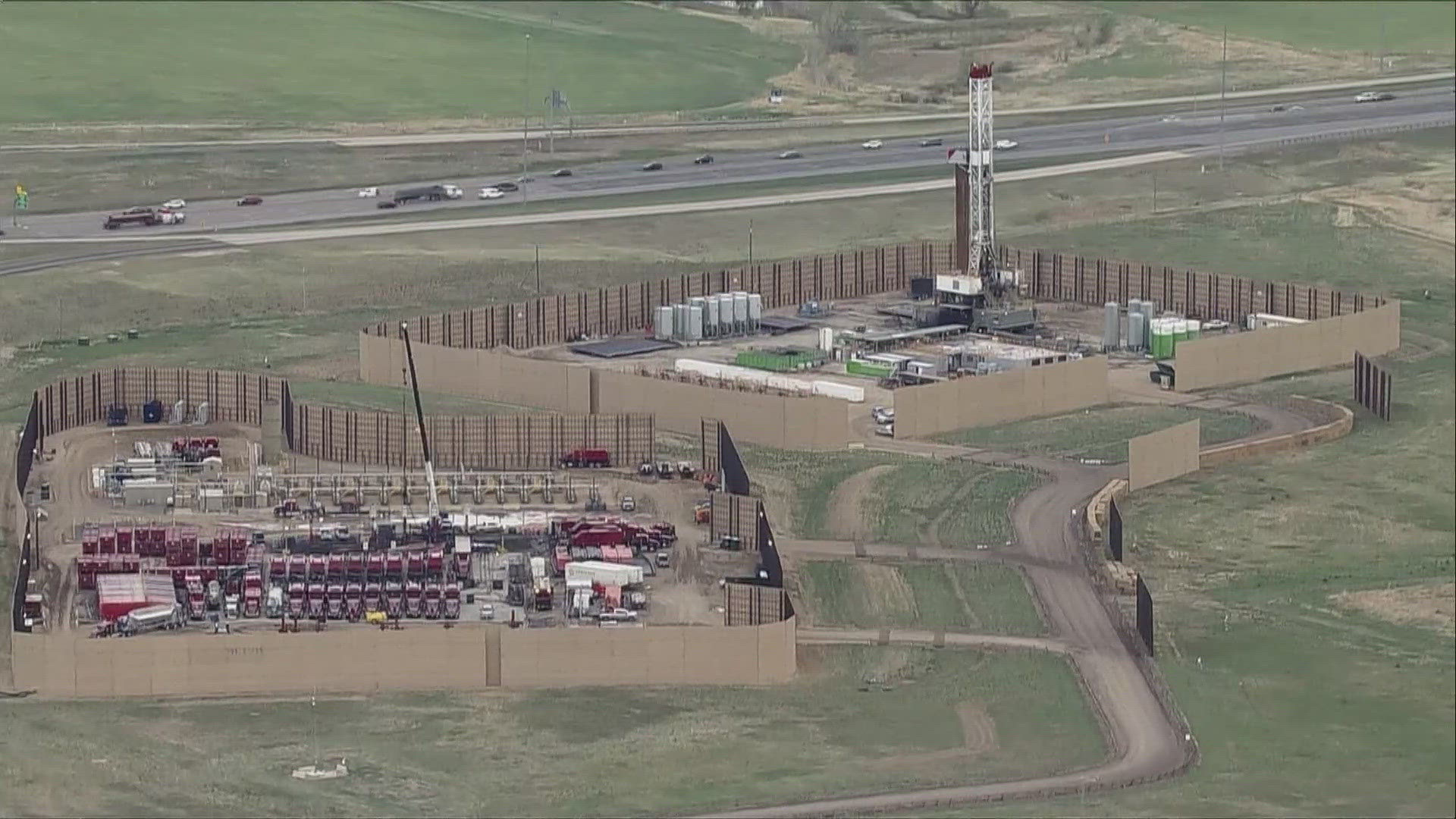COLORADO CITY, Colo. — As Democrats nominate Vice President Kamala Harris as their nominee for president, voters across the nation still do not have a clear picture of what policies a Harris presidency would bring to the White House.
The assumption is that it would be an extension of the Biden-Harris administration, but you know what they say when you assume.
As part of 9NEWS’ coverage of the Democratic National Convention, we are looking at the impact of a Harris presidency. This is Decision 2024: The Stakes for Colorado.
Harris’ presidential campaign website does not have what most campaign websites include: an “issues” tab or a place to find what the candidate stands for.
The Harris campaign is already walking back a comment Harris made when first running for president in 2019, about fracking.
"There's no question I'm in favor of banning fracking and starting with what we can do on day one around public lands, and then there has to be legislation,” Harris said during a 2019 CNN town hall. "This is something I've taken on in California. I have a history of working on this issue. We have to just acknowledge that the residual impact of fracking is enormous in terms of the impact on the health and safety of communities."
The Harris campaign now says that she does not want to ban fracking, which would require help from Congress, particularly if trying to ban it on public lands.
“A president doesn't have the power to ban fracking anyway. So, saying you're going to ban fracking was an empty promise back in 2019," Western Energy Alliance President Kathleen Sgamma said. "However, it indicates a hostility to developing oil and natural gas in the United States because almost every single well in the Rocky Mountain West, and most across the country other than offshore, are fracked. So, when you say you're going to ban fracking, you're basically banning oil and natural gas development.”
Western Energy Alliance has represented oil and gas producers in the Rocky Mountains for 50 years.
While Harris previously said she would ban fracking, Sgamma sees a larger issue.
“It means that they are hostile to oil and natural gas producers and that they're going to do everything to overregulate us and try to put us out of business as much as they can,” Sgamma said.
Colorado lawmakers have severely restricted fracking, requiring stringent new state-based regulations.
The fracking that could be impacted by a Harris presidency would be on federal lands within Colorado.
“She's able to open the narrative finally," Commerce City councilwoman Renee M. Chacon said. "What does environmental justice look like for a climate-just society? It's also recognizing the disparities and setting those most vulnerable as the priority for real equity. These are civil rights issues.”
Chacon lives near the state’s largest polluter, Suncor. She seeks environmental justice, something Harris has pursued throughout her career as a San Francisco District Attorney, California Attorney General and U.S. Senator.
What is environmental justice to Chacon?
“Our ability to be able to have our civil rights met to be able to breathe clean air, drink clean water, live in a clean space and educate our children with true sovereignty for Indigenous communities that still live in the urban corridor we still call Denver, the land of the Ute, the Cheyenne, the Arapahoe, the Shoshone and 48 tribes that still live and travel through here,” Chacon said, as though it was not the first time she recited that paragraph.
She wants to see environmental leaders under a Harris administration come to Colorado and directly meet with disproportionately impacted communities.
“We need those agencies to come and, kind of, meet with our local municipalities like Commerce City or local spaces like Pueblo, and actually talk with the community but also hold those local councils responsible for when they're doing certain land access that's not abiding by environmental justice,” Chacon said.
“This administration has really been prioritizing environmental justice and addressing climate change,” EPA Region 8 Regional Administrator KC Becker said.
As EPA regional administrator, Becker represents states in the Rocky Mountain West. Her job as a political appointee relies on a Democrat in the presidency. She explained how the Biden-Harris administration puts environmental justice into action in disadvantaged communities.
“When we've been implementing things like the Clean School Bus Program or lead service line replacement," Becker said. "We are prioritizing the communities that need it most.”
That was under the Biden-Harris administration, though, not the Harris administration.
“She hasn't done any interviews, she hasn't done any press conferences, so I'm not 100% sure that anybody really knows what her policy statements are,” Republican Weld County Commissioner Mike Freeman said.
Freeman is not sure what to be worried about yet because of the lack of policy statements from Harris.
As Vice President, Harris was the tiebreaking vote for the Inflation Reduction Act, which put a focus on climate change and electrification. It resulted in $140 million in home energy rebates for Coloradans.
“We've seen 64,000 people take advantage of electrification tax credits, and we just saw Colorado and the Denver Regional Council of Governments get about $330 million to continue that work,” Becker said.
“This huge push before we're ready for, you know, a complete green energy,” Freeman said. “Whether we want to get away from fossil fuel at some point, whether that's a good thing or not, time will tell, but I think you can get in too big of a hurry to get there.
“Are voters supposed to just believe that, you know, ‘whatever’ is her energy policy?" Sgamma asked. "Whatever you like is going to be her energy policy, and then they find out that's not the case? I think she's going to have to answer some specific questions about her energy policy and other policies to satisfy the voters, so they know what choice they’re making.”

